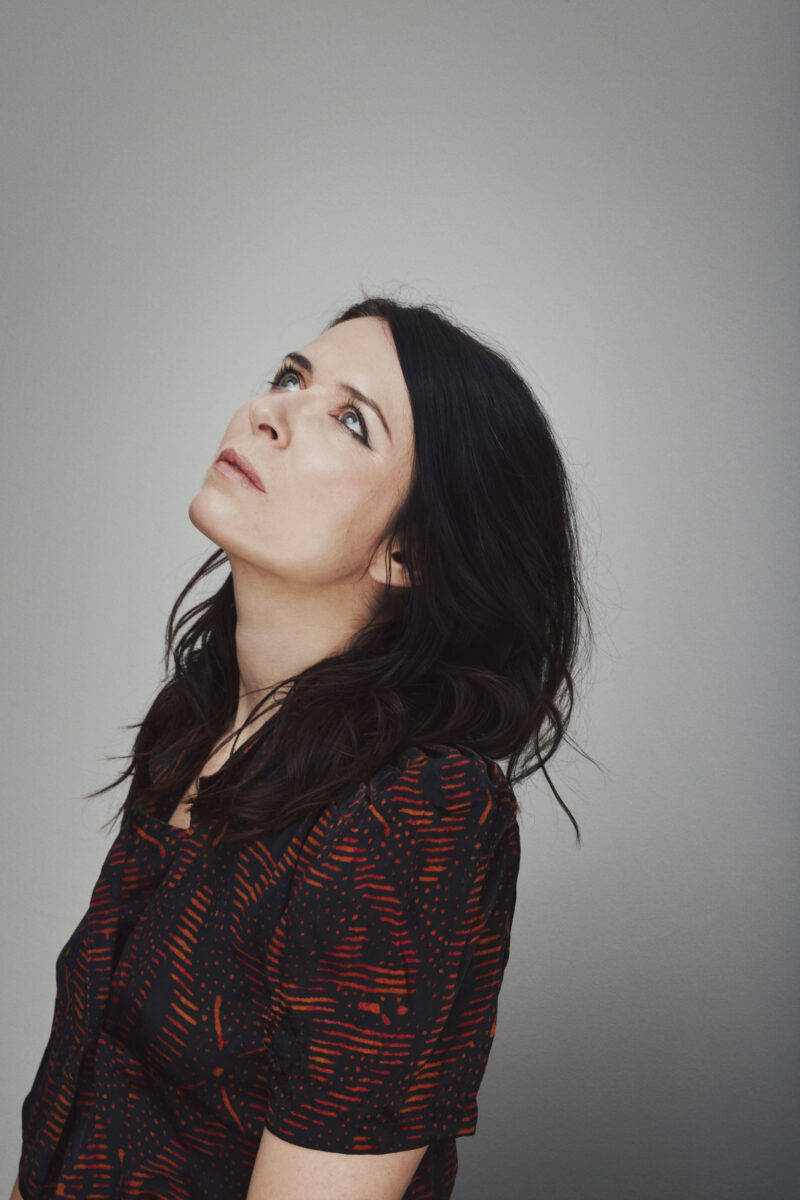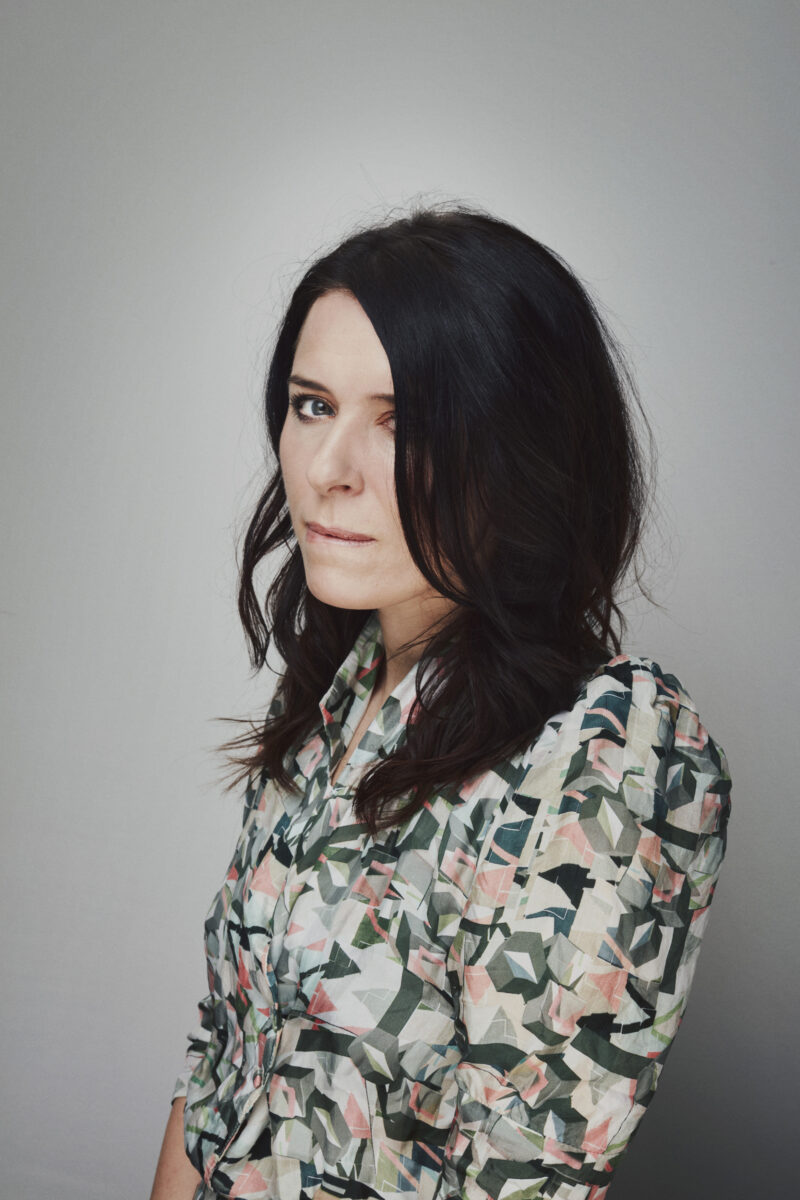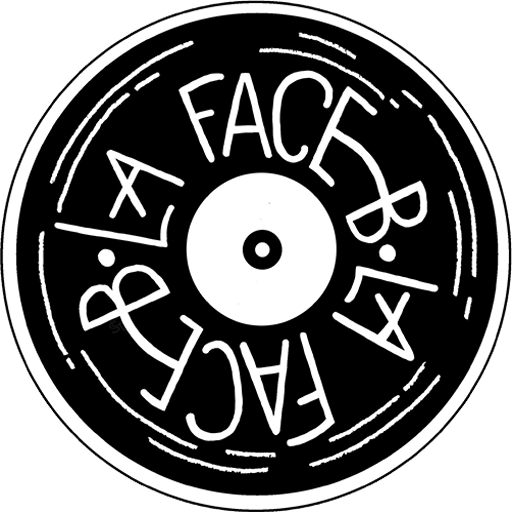Il y a quelque chose de l’ordre du mystique dans la musique de Kira Skov. Une magie éthérée qui nous projette dans des contrées brumeuses et mystérieuses. De ses racines ancrées dans la folk, Spirit Tree, son dernier album, prend vie et étend ses branches au gré de ses collaborations avec d’autres artistes… De Bonnie « Prince » Billie à John Parish (PJ Harvey, Aldous Harding), Jenny Wilson, Bill Callaghan ou encore Mark Lanegan (Screaming Trees)… des amis, ou des musiciens qu’elle admire et qu’elle a contactés, chacun participe au projet, en nourrissant l’opus de son unique savoir-faire. Le résultat est un album à la fois mélancolique et lumineux, aux multiples subtilités. Nous avons voulu en savoir plus sur Spirit Tree et avons posé quelques questions à la musicienne danoise…

VERSION ANGLAISE CI-DESSOUS / ENGLISH VERSION BELOW
LFB : Chaque chanson de l’album est une collaboration. Tu as travaillé avec de nombreux artistes, des amis et des personnes que tu admires : Bonnie «Prince» Billy, Bill Callaghan, Mark Lanegan, John Parish, Lionel Limiñana ou Lenny Kaye ainsi que des musiciens danois… Comment le projet a-t-il pris forme?
Kira Skov : L’idée d’un album en duo murissait en moi depuis un certain temps. Ceci étant mon 15e album studio, je suis toujours à la recherche de moyens de rester en mouvement dans mon parcours créatif. J’ai collaboré avec de nombreux autres artistes au fil des ans et je trouve que ces albums font partie de mes meilleurs. Unir ses forces avec un artiste qui s’est spécialisé dans quelque chose, que je ne peux pas maîtriser moi-même et vice versa, fusionner et créer quelque chose de plus que ce que nous aurions pu faire par nous-mêmes. Je voulais distiller cette expérience sur cet album. C’est un hommage au duo. Et un hommage à certaines de mes inspirations musicales et à toutes les personnes impliquées.
LFB : Comment l’album a-t-il été enregistré ?
Kira Skov : Nous avons fait les premiers enregistrements à Copenhague avec mon groupe. Les artistes danois sont tous venus au studio et ont chanté en direct avec moi. Mais pour les collaborations internationales, nous avons dû nous envoyer des fichiers et faire des aller-retours par mail.
LFB : J’ai recherché “mystery tree” et j’ai découvert que c’était un «moyen de transport gnomique». Le nom a une aura magique qui s’accorde très bien avec l’ambiance de l’album. Que signifie ce titre pour toi ?
Kira Skov : Oui, le « spirit tree » était sacré pour la communauté amérindienne. Il y a quelque chose de mystérieux dans l’imagerie du titre. Mais pour moi, il symbolise une forme d’arbre généalogique. Âmes sœurs (« Kindred spirits »). Et comment les choses peuvent grandir à partir d’une idée dans de nombreuses collaborations différentes.
LFB : Tu apparais assise devant un arbre sans feuilles sur la couverture de l’album. Peux-tu nous en dire un peu plus sur cette image?
Kira Skov : Elle symbolise le début. l’idée originale.
LFB : Il y a diverses influences sur l’album, du folk mystique, des paysages sonores rêveurs et des chansons plus pop. Il y a des influences évidentes de Kate Bush et Dusty Collins sur Dusty Kate et des influences orientales sur la voix de Pick Me Up … Il y a aussi beaucoup de références à la poésie … D’où vennaient tes principales inspirations lorsque tu composais Spirit Tree ?
Kira Skov : Dusty Kate est un hommage à Dusty Springfield et Kate Bush. J’ai également trouvé que c’était un hommage à Mette (Lindberg – ndr), qui incarnait une énergie similaire pour les deux.
Mais oui, j’ai trouvé l’inspiration en lisant Kerouac, Dylan Thomas, Walt Whitman et plus encore.
LFB : Bonnie «Prince» Billy apparaît sur deux des chansons de l’album, We Won’t Go Quietly et Some Kind of Lovers. Comment / quand vous êtes-vous rencontrés? Peux-tu nous parler de cette collaboration?
Kira Skov : Bonnie « Prince » Billy et moi avons collaboré pour la première fois sur mon album précédent The Echo of You, qui était un hommage à mon mari qui est décédé tragiquement en 2017. Nicolai était, comme moi, un grand fan de Will (Will Oldham aka Bonnie « Prince » Billy – ndr), et je l’ai contacté et lui ai demandé s’il voulait bien prêter sa voix à une chanson qui était une sorte de conversation entre moi et mon mari (Lilac Sky). Il a également chanté sur la chanson titre The Echo of You. Je l’ai contacté à nouveau et le courant est passé avec les chansons de cet album. Je suis infiniment reconnaissante qu’il se soit à nouveau impliqué.
LFB : Le thème de Lenny qui clôt l’album semble expérimental et a une forte sensation cinématographique. Cela prend la forme d’une conversation avec Lenny Kaye ( le guitariste de toujours de Patti Smith entre autre). Peux-tu nous en dire plus sur cette chanson et sur votre collaboration?
Kira Skov : Lenny est un bon ami. Nous nous sommes rencontrés à New York il y a environ 13 ans et c’est un bel être humain. Mais plus que cela, c’est un grand musicien et c’est une sorte d’historien de la musique. Il a écrit plusieurs livres sur la tradition musicale américaine. J’ai écrit le thème et j’ai pensé qu’il serait intéressant de lui envoyer une question et de voir ce qu’il répondrait. J’adore le résultat !
LFB : Y a-t-il une autre chanson qui vous tient particulièrement à cœur ou qui a une histoire particulière que vous aimeriez partager avec nous?
Kira Skov : J’aime particulièrement We won’t go quietly. J’ai écrit cette chanson pendant la première partie du confinement, en solidarité avec le mouvement qui a suivi le meurtre public de George Floyd. C’est à la fois une chanson de protestation et une réflexion sur l’engrenage du traumatisme humain dans laquelle l’histoire se répète encore et encore.
Nous avons délibérément choisi de garder le son brut de l’enregistrement de la démo original. J’ai essayé de créer une ambiance de «fenêtre, ouverte sur le monde…» avec des gens qui criaient et des voitures qui passaient. La chanson a été enregistrée avec un seul micro dans la petite maison de campagne où j’ai fini par écrire une grande partie du matériel pour cet album. Il y a une mentalité de musique roots (« roots-music-mentality ») dans la production, et nous avons décidé de travailler avec, en nous appuyant sur l’enregistrement de la démo original.
LFB : L’atmosphère de l’album est sombre mais il y a de la force et un sentiment d’espoir qui s’en emanne. Dans quel état d’esprit étais-tu lorsque tu as composé l’album?
Kira Skov : Comme je le disais, il a été principalement composé et enregistré pendant et après le premier confinement. Je pense que ces temps nous ont donné du temps pour la réflexion. Je pense que l’album contient un sentiment d’unité. Ou l’importance de l’appartenance. La sensation communautaire.
Je pense que ma musique a toujours un soupçon de mélancolie, mais dans l’ensemble, c’est un album plein d’espoir et peut-être même un album de célébration pour moi.
LFB : Merci Kira Skov !
KS : Merci beaucoup La Face B !

ENGLISH VERSION
There is something mystical in Kira Skov’s music. An ethereal magic that projects us into misty and mysterious lands. From its roots in folk music, Spirit Tree, her latest album, becomes alive and extends its branches through her collaborations with other artists… From Bonnie « Prince » Billie to John Parish (PJ Harvey), Jenny Wilson, Bill Callaghan or Mark Lanegan (Screaming Trees)… friends, or musicians she admired and contacted, each one of them participates in the project, feeding the record with their unique know-how. The result is an album both melancholic and luminous, with multiple subtleties. We wanted to know more about Spirit Tree and asked some questions to the Danish musician…
LFB: Every song on the album is a collaboration. you’ve worked with many artists, friends and people you admire : Bonnie “Prince” Billy, Bill Callaghan, Mark Lanegan, John Parish or Lenny Kaye as well as many Danish musicians…
How did the whole project take shape?
Kira Skov: The Idea for the duet album has been brewing in me for some time. This being my 15th studio album, I’m always looking for ways of keeping in motion on the creative path. I have collaborated with many other artists over the years and I found that those are amongst my best albums. Uniting forces with artist that has specialized in something, that I could not master myself and vice versa, merging and creating something more than we could have done by ourselves. I wanted to distill this experience on this album. It’s a homage to the duet. And a tribute to some of my musical inspirations and everyone involved.
LFB : How was it recorded?
KS: We recorded the ground-tapes in Copenhagen with my band. The Danish artists featured all came to the studio and sang live with me. But with the international collaborations, we had to send files backwards and forwards.
LFB: I researched “mystery tree” and found out it is a “gnomic medium of transport”. The name has a magic aura which suits very well with the atmosphere of the album. What does this title mean to you?
KS: Yes, the spirit tree was sacred to the native american community. There is something mysterious about the imagery of the title. But to me it symbolizes a form of family tree. Kindred spirits. And how things can grow from one idea branching into many different collaborations.
LFB: You appear sitting in front of a leafless tree on the cover of the album. Can you tell us a bit about this image?
KS: It symbolizes the beginning. the original idea.
LFB: We can feel diverse influences on the album, with mystic folk, dreamy soundscapes, and songs that are more Pop. There are obvious influences of Kate Bush and Dusty Collins on Dusty Kate and some oriental ones on the voice on Pick Me Up… There’s also a lot of references to poetry… What/who would you say inspired you while writing Spirit Tree ?
KS: Dusty Kate is a Homage to Dusty Springfield and Kate Bush. I also found that it was a tribute to Mette (Lindberg), who embodied some similar energy to both of them.
But yes, I found inspiration reading Kerouac, Dylan Thomas, Walt Whitman and more.
LFB: Bonnie “Prince” Billy appears on two of the songs of the album, We Won’t Go Quietly and Some Kind of Lovers. How/when did you two meet? Could you tell us about this collaboration?
KS: Bonnie “Prince Billy” and I first collaborated on my previous album « The echo of you », which was a tribute to my husband that tragically passed away in 2017. Nicolai was a big fan of Will (Will Oldham aka Bonnie « Prince » Billy), as I am myself and I reached out and asked if he would lend his voice to a song that was a form of conversation between me and my husband. (Lilac sky). He also sang on the title track the echo of you. And so now I reached out again and we had a great flow with the songs on this release. So grateful to have him involved again.
LFB: Lenny’s Theme which closes the album sounds experimental and has a strong cinematic feel. It takes the shape of a conversation with Lenny Kaye. Could you tell us more about this song and about your collaboration?
KS: Lenny is a good friend. We meet in NYC about 13 years ago and he is a beautiful human being. But more than that, he is a great musician and he is some kind of a music historian. He wrote several books about the American music tradition. I wrote the theme and I felt it would be interesting to just send him a question and see what he would reply. I love how it turned out!
LFB: Is there another song that is particularly close to your heart or that has a particular story that you would like to share with us?
KS: I’m particularly fond of We won’t go quietly. I wrote this song during the first part of the lockdown, in solidarity with the movement that followed the public murder of George Floyd. It’s both a protest song and a reflection on the human trauma loop, in which history repeats itself over and over again. We deliberately chose to preserve the raw sound from the original demo recording. I tried to create a mood of ‘a window, open to the world…’ with people shouting and cars driving by. The song was recorded with a single microphone in the small country house where I ended up writing a lot of the material for this album. There’s a roots-music-mentality in the production, and we decided to work with it, building on the original demo recording.
LFB: The atmosphere of the album is dark but there’s strength and a feeling of hope in the whole. What state of mind were you in when you composed the album?
KS: It was as stated above primarily composed and recorded during and following the first pandemic lock down. I think that time granted us time for reflection. I feel the album contains a sense of unity. Or the importance of belonging. The communal feel. I think my music always has a hint of melancholy, but overall its a hopeful and maybe even celebrational record for me.
LFB: Thank you!
KS: Thanks a lot La Face B !
Découvrir Spirit Tree :
Retrouver d’autres interviews ici
